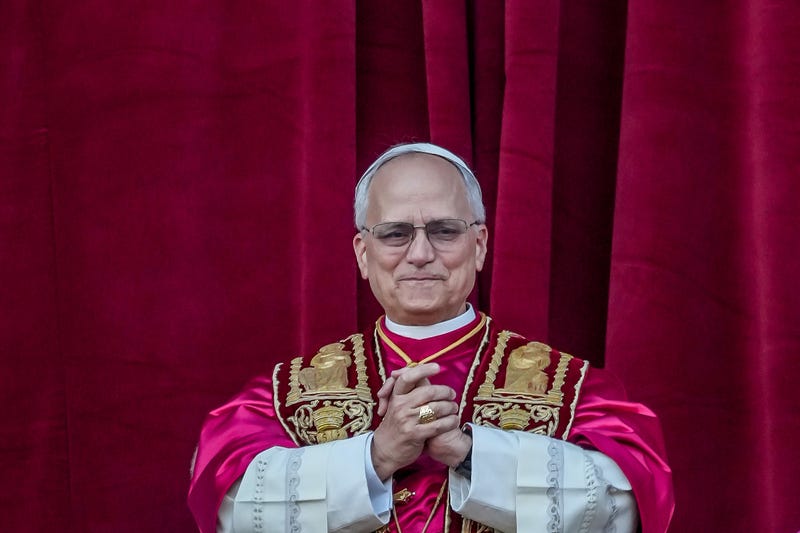
The new pope is of Louisiana Creole descent, and according to one genealogist, that will put a global spotlight on the Creole people and their mixed ancestry.
Pope Leo XIV, born Robert Francis Prevost, is the grandson of New Orleanians. Genealogist Alex DaPaul Lee calls Prevost's elevation to the papacy a "monumental moment" for the Creole people. Lee believes that this will bring renewed pride among the Louisiana Creole people.
"For so long, a lot of the talk around Creoles were in private (because of) racial passing to where not many people had the pride in being Creole because of the fact that there were all of the things that people perceived us to be without fully understanding the complexities of who we are as a people," Lee said. "A lot of times, there is now a whole Creole-versus-Cajun argument. This gives the Creoles a voice now--a global voice."
Lee says now that Pope Leo's ancestry is known to the public, neither the Catholic Church nor the American public can ignore issues of race.
"First and foremost: race is a social construct," Lee said. "Having somebody with the magnitude of the pope (with mixed ancestry) is now going to challenge people's ideology of race. Now that it is known that the pope has Black ancestry, what can we label the pope? It's what we can label the pope, but what does the pope label himself, and how will America label him? Although he may appear one way, many Louisiana Creoles tend to know our family based on certain features one may have."
"The fact that we can go into the pope's background and see the complexity of his family's lineage, you cannot erase that history anymore and label it 'black' or 'white,' Lee added. "Now you have to look at it in the broader perspective of all of the family ties he has."
Lee notes that the Pope's ancestry shows that the Louisiana Creole experience is the American experience in microcosm. That's because the Creole culture is itself a giant melting pot with different ethnicities mixing to create a singular culture.
"The significant thing about Louisiana Creoles is that, for the most part, we know our origins," Lee said. "We know our families. We know of the French. We know of the Spanish. We know of the Native American. We know all of the things that we have in our family lineages.
Lee expects the interest in Pope Leo's heritage to renew interest in the Creole culture both inside and outside the culture.
"Many can now delve into the genealogy of the pope. They can see the complexities from every perspective--the migration patterns that a lot of the Louisiana Creoles had, as well as the Haitian ties. People tend to forget that Haiti was also part of the French Empire. There has always been a migration from Haiti to Louisiana over the course of history. A lot of families from Haiti settled in Louisiana, and a lot of families from Louisiana migrated from Haiti."



